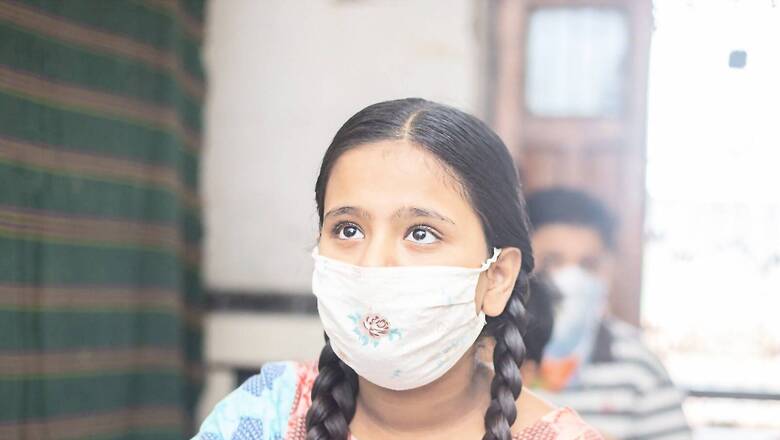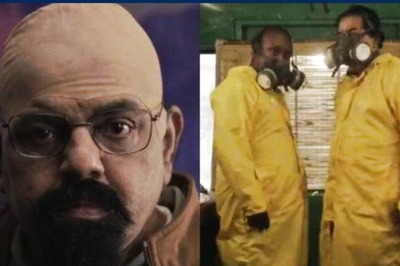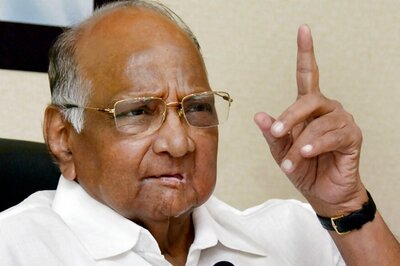
views
In March 2020, when COVID-19 restrictions first kicked in, little was known about the disease. Sanitizers and disinfectant sprays were sold out because we were told surface transmission was highly likely. Vaccines were not on the horizon. Lockdowns were imposed to slow the spread of infection and give our healthcare systems time to assess and cope. In April-May 2021 came a deadly variant in the form of Delta, and after many hiccups, came vaccines for all adults. Scientific studies worldwide have created a venerable database of information about the disease, and seropositivity studies in India have revealed en masse exposure to the virus. It is now clear that SARS-Cov-2 is an airborne respiratory virus and surface transmission is highly unlikely.
Twenty-two months later, we are in January 2022, faced with a variant which we know is more transmissible and can easily infect even the vaccinated but is so far causing less severe disease than Delta based on early data. Public health experts have recommended factoring the airborne nature of the virus into the pandemic response and ramping up of healthcare capacity; some have recommended a shift in policy focus from number of positive cases to indicators based on severity (e.g., number of hospitalisations). Omicron warrants precautions but not panic.
Despite the scientific advances made in the recent past, the policy response to COVID-19 in India remains unchanged. For example, night curfews were imposed by certain states, although massive election rallies continue during the day in some of these states. Delhi’s Graded Response Action Plan (GRAP), which was approved by the Delhi Disaster Management Authority (DDMA) in July 2021, is another example. The GRAP states that “reasonable restrictions on movement/activities have been an effective measure for breaking the chain of transmission of virus” and focuses on lockdowns triggered by the number of cases, positivity rate or oxygen bed occupancy. As the positivity rate lingered above 0.5 per cent in Delhi, the ‘yellow alert’ under the GRAP was implemented on December 28, 2021, without any review of its contents, allowing indoor spaces such as restaurants, bars, offices, and malls to remain open at certain levels, subject to capacity constraints that are not always followed. However, outdoor public spaces such as parks, which are known to be safer, are restricted at level 1 and completely closed at level 2.
Perhaps, the most egregious feature of Delhi’s GRAP is the closure of educational institutions in the first ‘yellow’ level. In fact, in blatant disregard of our children’s right to a meaningful education, the DDMA kept schools closed (except for sporadic opening for senior classes) even when the GRAP threshold was not met. Despite abundant reports on the harms of prolonged school closures, statements by UNICEF that schools must be the last to close and the first to open, and ample studies evidencing that schools are not super-spreaders and young children, in particular, are at least risk of severe or fatal COVID-19, the DDMA jumps to close educational institutions first because children and their education are low-hanging fruit; long-term consequences for children simply do not feature in political calculations.
Our leaders have chosen to ignore the immense costs of school closure, especially on poorer sections of society. India’s EdTech start-ups may be flourishing but online education is not accessible to all. Apart from learning loss, children are subject to physical and mental health problems, malnutrition, disruption in routine immunisation, child labour and abuse, and reduced development of social skills. The message is loud and clear—our children’s rights to education, health and life are dispensable whereas entertainment, election rallies, and unicorn EdTech start-ups are essential. It is no surprise that India ranks second in the ignoble competition for the world’s longest school closures. If top-ranked Uganda opens schools as scheduled in January 2022, India will soon take its rightful place as rank 1 and the effects of prolonged school closures will reverberate for years to come. When it comes to schools, India is an exception, not the norm.
On December 29, 2021, the DDMA decided it would not implement level 2 (amber) restrictions even though the positivity rate exceeded 1 per cent, citing the risk of panic among migrant workers. This decision may also help Delhi’s traders and restaurateurs, but what about our children whose rights have been infringed for almost two years? Why are schools closed but economic activity allowed when we know that adults bring infection home? What about the fact that outdoor areas are safer than indoor spaces?
We are happy to “follow the science”, but science moved on a while ago. The DDMA irrationally kept educational institutions closed even when there were hardly any COVID-19 cases and everything else was open (with kids allowed). Now, the DDMA is reluctant to enforce the GRAP in its current form. This shows that the DDMA allows itself some flexibility when it suits, however, there is a fine line between flexibility and arbitrariness. The past two years show that a zero-COVID goal is unachievable.
The emphasis of the COVID-19 policy response must move from unscientific infringement of citizens’ rights to permitting low-risk populations such as children to resume their normal lives while ramping up healthcare capacity and adopting appropriate measures for focused protection of high-risk populations such as the elderly. The DDMA must recognise that in-person education is essential, and revise the GRAP in consultation with public health experts to align it with current scientific evidence. Overreaching and unscientific closures may help the laptop class but will continue to hurt marginalised and vulnerable sections of society, including children, in the long-term.
Tanya Aggarwal is a New Delhi-based lawyer and parent of a six-year-old. She can be reached @tanya_aggarwal1. The views expressed in this article are those of the author and do not represent the stand of this publication.
Read all the Latest Opinions here



















Comments
0 comment